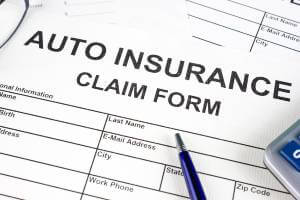Can Minnesota Car Insurers Deny Coverage Over Fraud When You Obtained the Policy?
 Is a car insurance company legally allowed to cancel a policy and deny coverage based on allegations the policyholder committed fraud when he or she obtained the policy?
Is a car insurance company legally allowed to cancel a policy and deny coverage based on allegations the policyholder committed fraud when he or she obtained the policy?
You may be surprised to learn the answer is likely “no” in the state of Minnesota, thanks to the frozen liability rule in the No-Fault Automobile Insurance Act. Below, learn more about this rule and how it could apply when a crash victim files a claim.
If you are struggling to obtain compensation from your car insurance company, or they have claimed you obtained the policy fraudulently, TSR Injury Law is here to help. Give us a call today to schedule a free consultation. We may be able to help and there are no upfront fees for our services. We do not get paid unless you receive compensation at the end of the legal process.
Minnesota’s Frozen Liability Rule
Minnesota’s No-Fault Automobile Insurance Act has a section that has been referred to as a frozen liability statute. According to the statute (65B.49 Subdivision 3. (3)(a)):
Insurance carriers have absolute liability for any injury or damage that is covered by the policy. Absolute liability is not waived based on statements made by or on behalf of the policyholder. Nothing the policyholder said or did before or after the crash, including fraudulent statements, could void the policy.
For example, if you said you would be the sole operator of your vehicle when you bought your policy, but then allowed someone else to operate it, the insurer may claim fraud. However, you should still be eligible for coverage after a crash.
However, it is important to note, the law only requires insurance companies to pay statutorily required minimum coverage. If you purchased $100,000 in personal injury protection, you would only be able to obtain $30,000, because that is the minimum required by law. The insurance policy itself may contain a fraud exclusion that limits your coverage – however, sometimes parts of insurance policies can be successfully challenged in a courtroom.
The frozen liability rule is consistent with legislators’ public policy interest in crash victims having a source of compensation. Allowing insurers to rescind coverage would almost defeat the purpose of minimum coverage requirements.
Is There an Argument for Obtaining Full Coverage?
This is a question you should discuss with a licensed Bloomington auto accident lawyer, as this is a complex issue. If you were in a serious crash, the cost of treating your injuries may very well exceed the minimum coverage limits. If the insurance policy will not cover those damages, you may have to pay them out of your own pocket.
You should seek out an experienced attorney for help, as he or she is more likely to be familiar with recent cases where this issue has come up, or he or she will have the resources and/or staff to research similar situations to see how they may help with your case.
At TSR Injury Law, we have obtained over a billion on behalf of our clients, including millions for car crash victims. We have taken on a wide variety of car crash cases and have extensive knowledge of relevant laws.
We are ready to aggressively work to hold insurance companies accountable and try to obtain maximum compensation for your damages. We are fully prepared to go to court to attempt to recover the compensation you need, unlike some attorneys who may be unable or unwilling to say that. It is important to be represented by an attorney with the resources and knowledge to fight for full compensation on your behalf.
Need Legal Help? Give TSR a Call Today
Crash victims could greatly benefit from a meeting with a licensed attorney. At TSR, this initial meeting is free and there is no obligation to hire our firm. We take cases on contingency, which means there are no attorney fees unless you receive compensation.
Learn more by calling (612) TSR-TIME. We are here to help.



